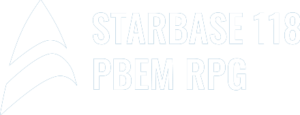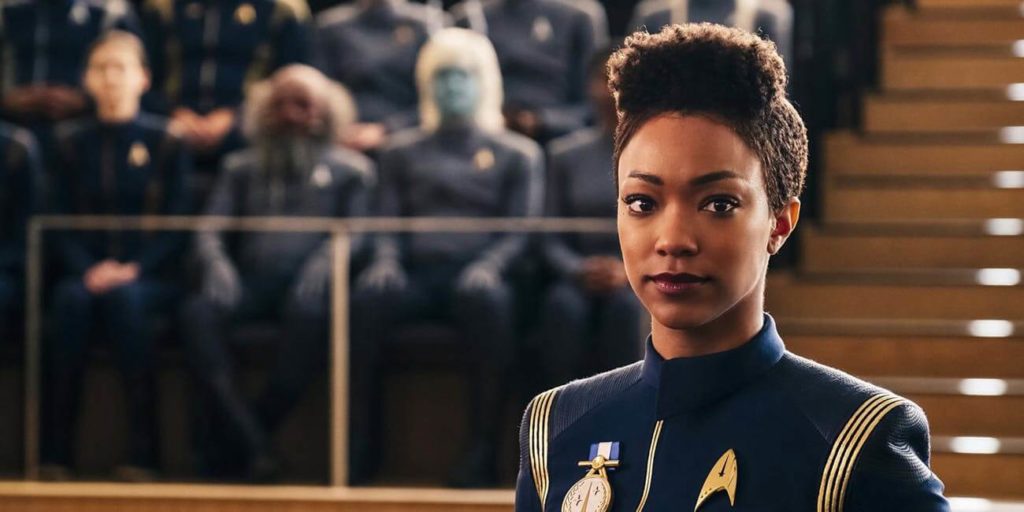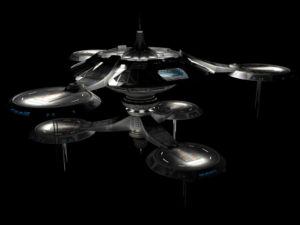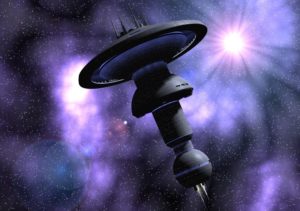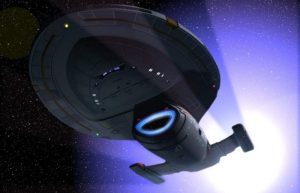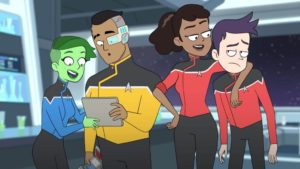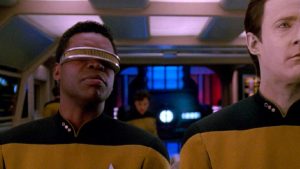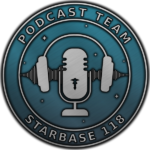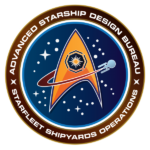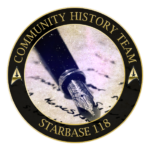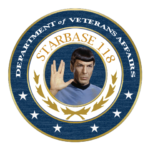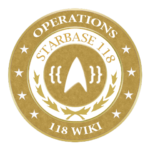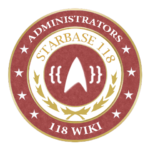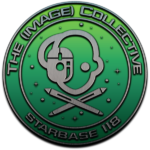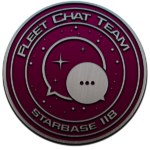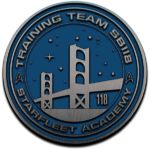Join us for another interview in a series that highlights the winners of awards from our 2401/2024 Awards Ceremony. Our goal is to give you insight into how our fleet’s best simmers write and imagine their characters, as well as their out-of-character contributions and achievements.
This month, we’re interviewing the writer behind Captain KarrodNiac. He is a Trill captain about to celebrate his 50th birthday. Last year, he won the James T. Kirk Cross, which is no small thing. It is a commendation awarded to new Commanding Officers who show outstanding potential in the field of commanding. Their advancement into commanding their own ship can be fraught with challenges, but the receiver of this award has met them head on with vigour.’ We from the Newsies have decided to invite the man for a serious crossfire, so we all get to know him. And maybe learn a few tricks or insights into what it’s like to run a ship.
Williams: As always, I would like to thank you for taking the time to be here. Would you start by telling us a little bit about yourself, the writer? What part of the world do you call home, and what do you do outside of SB 118?
Niac: Sure, always happy to contribute to the newsies – you folks do great work for the fleet and I love how it helps support our little world. To your question – I’m originally from the east coast of the USA and spent about 15 years in Brooklyn and Manhattan before moving to the Pacific North West in 2016. My family and I live across the Puget sound, about forty minutes from Seattle by ferry, on a little spot called Bainbridge Island. It’s lovely here, and I heartily encourage folks to come visit. When I’m not doing my space-job, my real job is as an IT manager for a major west coast pediatric hospital and research organization.
I am sure many of us look forward to leading a group and having a ship to call your own. What was it like for you to hear you were given the honor of leading your (first) ship?
In a word – overwhelming. CO slots are a very rare thing in our world, and being asked to run a ship is arguably the single most important responsibility that any member will ever be tasked with. So, as much as I looked forward to the challenge, I felt no small measure of pressure to do things well and right. Add to that, we built our new crew entirely from volunteers, aboard a ‘new’ ship that had not been active in the fleet for years, so there was no pre-established culture or history to use as our foundation. On one hand, it was a great problem – we had a completely blank piece of paper upon which to create something new. On the other hand, we had a completely blank piece of paper, a crew that had never written together before, and a brand new CO. So I go back to my original point – ‘overwhelming’ was the word of the day.
No doubt there are a few things about running a ship that are not visible to everyone. What do you most enjoy about the task, and are there things you underestimated?
Oh sure, there’s a lot of ‘pay no attention to that man behind the curtain’ kind of stuff when it comes to running our missions or shoreleaves, or just the simple administrative work that goes into daily ship and crew management. Of the ‘behind the scenes’ things that I’ve enjoyed the most is building out our ships staff team – it has been great joy to form a team that I can so deeply trust and rely on because it takes some of the pressure off when, say, real life demands pull my focus away from the ship. As far as things I’ve underestimated…frankly, it’s how much I’d love it all. There’s such joy in the fleet, in the writing we do, and watching new members grow from junior officers into staff members themselves, in watching the wonderful things people create and the relationships that form
You won the James T Kirk Cross last June. Do you think there are many similarities between your character and Kirk?
Beyond the fact that I think Karrod could pull off that snappy green ‘off duty’ uniform tunic just as well as old Jimbo, not really. They’re two very different kinds of officers and characters in my eyes, with Karrod coming into command much later in his IC career after he’d basically given up on the idea and considered a quiet retirement for a while. I think it’s part of what makes him interesting to write as a contrast to my original PC, Geoff Teller. Teller was young and fresh out of the Academy and his career IC took him from Ensign to Commander around three years IC. Whereas Karrod (even before the symbiote, which he also got ‘late in life’ compared to our other examples of Joined Trill) had a full and robust career before ever reaching that big Chair. It allows for some different perspectives and maturity in my approach to the writing and around some of his feelings towards command.
And that already brings us to our final question. Do you have any advice for your fellow writers? Anything you’d like to share about your writing process that we may find interesting or helpful?
Niac: I think there’s a lot of little tips or tricks I could pass along that I’ve managed to pick up in my six and a halfish years with the fleet but beyond mechanical things, I think the best piece of advice that I could pass along would be to remember to set aside 118 from time to time so you can read or write outside our universe. Pick up a new series to read, try responding to a writing prompt online or banging out a short story that’s entirely unrelated to 118/Trek. It may seem counterintuitive, but I’ve found that when my creative batteries are drained stepping back and letting myself be inspired by some other work of fiction can be my best way to stay creatively fresh and engaged with our world. I’ve often heard it said “the best writers are readers,” and I’ve found that more and more true the longer I do this.
Thanks for your time, Captain Niac!
You can read more about Karrod Niac on the wiki.
